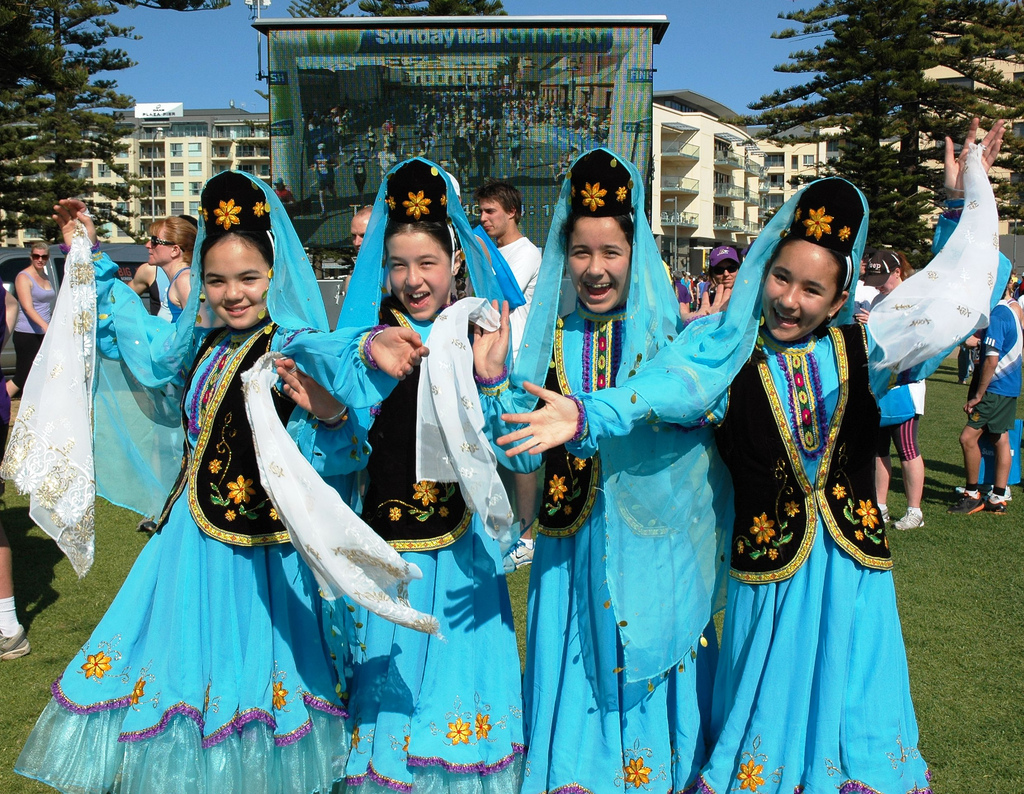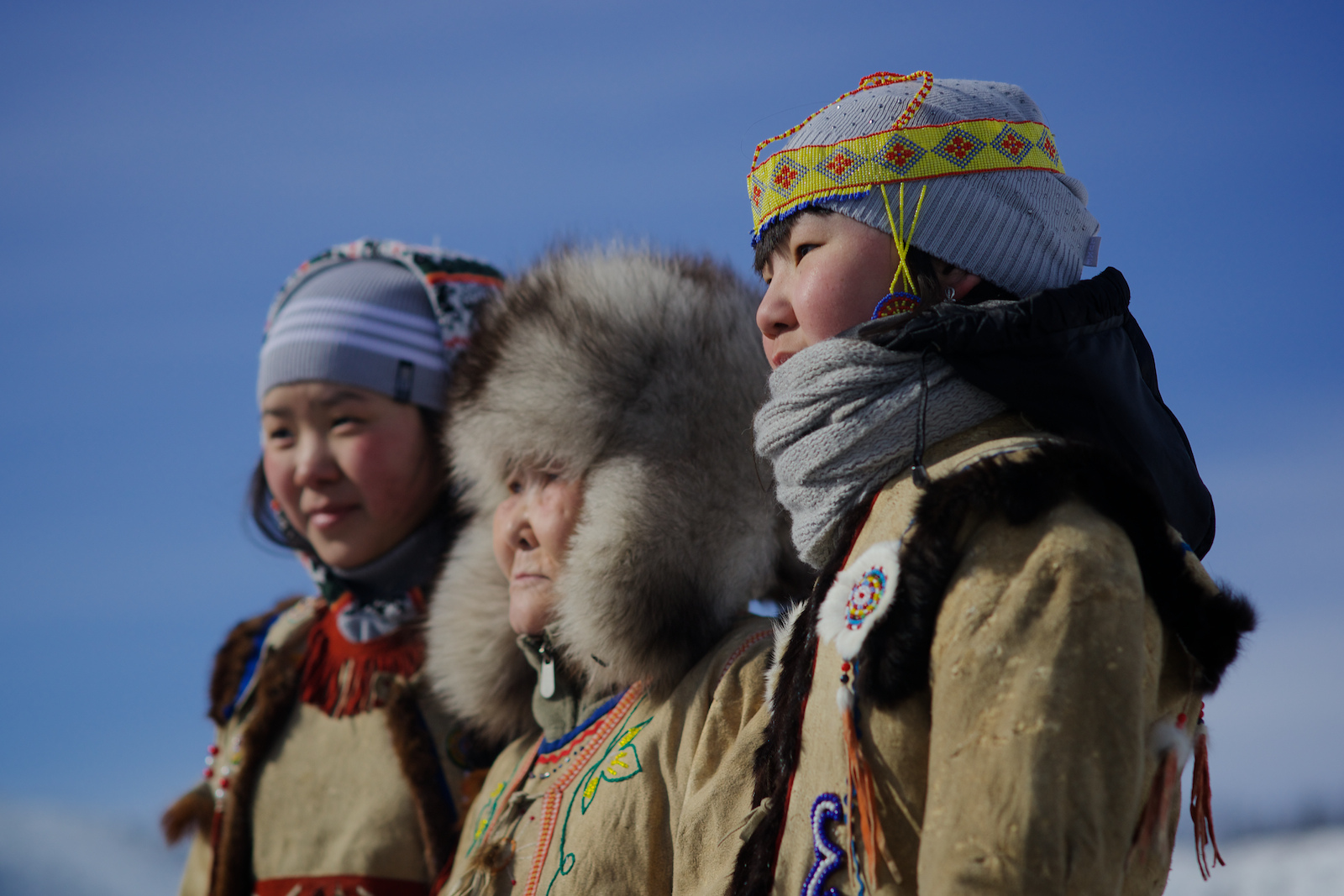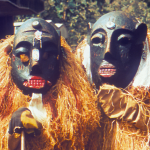Whilst doing some research for my article on Forvo.com, a language learner’s website, I also conducted an interview with Fähim Cihanşin (65 years old), former leading expert in the public relations department of the Russian truck manufacturer KAMAZ, now retired. Fähim is a Volga Tatar from the Republic of Tatarstan, which is part of the Russian Federation and where the Tatar people still hold a majority. With a total 172,000 words added and 129,000 pronunciations recorded, most of them in the Tatar language, he ranks second in both of the contributions rankings of Forvo.com. The interview was conducted in German and then translated into English.
Why do you espouse the Tatar language that much?
I don’t really know why. I am most probably unknowingly and subconsciously motivated to stealthily introduce Forvo’s users to this multilaterally developed and perfect language of the Turkic language family. I think that our language is a very attractive spot on the dark side of the moon of the linguistic world, a place that hardly anyone has seen so far. Furthermore, our language is open for additions to its vocabulary by absorbing loanwords from other, mostly European languages. We even have [invented] a saying due to this circumstance: “Tatars don’t need an interpreter!” (Tatarğa tılmaç kiräkmi!). Also, Tatars are very skilled at understanding both western and eastern mentalities. Our forefathers have been a bridge between the two poles of civilisation for hundreds of years. All of this may have contributed to my stay in Forvo for the last three years.
Is Forvo just a hobby for you?
International linguistic websites (Forvo.com, Rhinospike.com, Tatoeba.org, etc.) are unique media tools that enable even single persons like myself to contribute a lot to the development of peoples’ diplomacy. I am happy to have found many new friends and comrades from many different countries through Forvo.
Do you perceive the Tatar language as threatened?
The UNESCO „Language Vitality and Endangerment“ conception does not count Tatar as a language threatened by slow extinction, since there exist various Tatar diasporas throughout Europe, the USA and Australia which stay true to their mother language. Things are not that easy, though. The Russian fascism doubtlessly seeks new ways nowadays to eliminate non-Russian languages in Russia and subsequently eradicating „alien“ people from its reinstated “deployment zones” in the east and south. We hope for compassion and support from civilised Europe and United States. The peoples of the Great Steppe – Kazakhs, Tatars, Bashkirs, Mari and Udmurts – and their languages are de facto and equally endangered. Moscow rapidly pushes Russia back into the Middle Ages. And the world has never seen a feudal lord with nuclear bombs before…
What is it that threatens the Tatar language? Creeping Russification?
It’s not merely a creeping, but also an aggressive and brutal politics of Russification and annihilation! In the past few years, more than 2000 Tatar schools in Tatarstan and Bashkortostan have been forced to close down. They only teach Russian wherever you go nowadays. In addition, Moscow has denied us the creation of the Tatar University and has forbidden the translation of the existing Cyrillic script [in the Tatar language] into the Zamanälif script (modern Latin alphabet). The Kazan State University (founded in 1804) got renamed into “Volga Federative University” and was brought under direct Moscow control. It features only a small, partially Tatar-speaking faculty.
Does Russia also proceed against the Tatar culture?
In this case, all cultures are equally disadvantaged. After the October Revolution, the Soviets tried to deracinate all peoples from their centuries-old cultural roots. Cultural traditions and customs of the ethnical minorities were step by step driven underground. The dominant Russian national culture (which is beautiful in itself) was transplanted into the soil of the so-called “proletarian culture”. After the fall of the USSR, this pseudo-culture was neglected and discarded completely. The resulting “cultural vacuum” is nothing less than a fertile soil for nowadays’ accelerated fascisation of the predominant Russian people. The western world does still underestimate the possibly devastating results of this phenomenon. This also explains the mistakes made in the Ukraine policy of the EU and the USA, [a policy] which is imprisoned by “economic” stereotypes. The national cultures of the peoples, which have been built up in centuries-long processes, are immune against any kind of extremist ideologies. That is why the globalisation in its current form does not have a positive future.
Has the government’s attitude towards the Tatars changed after the fall of the Soviet Union?
After the fall of the Soviet Union, we’ve had a bit of time to take a breather. In 1990, the Republic of Tatarstan declared its national independence. We even signed a bilateral
agreement with Moscow. Public schools were introduced in all towns and villages. The revival of the national higher education began. This period of grace lasted only for a decade. Today, everything has been lost.
How can the situation of the Tatars be compared to the situation on the Crimea?
In 1992, [after the fall of the Soviet Union,] the Republic of Tatarstan conducted a referendum [on their future] which was timely conducted, respecting all international norms – not at gunpoint, like the Russians did now on the Crimean Peninsula. Almost two thirds of the population voted for the Republic of Tatarstan to become an international legal personality [and thus independent from Russia] and to found their relations with the Russian Federation on the base of bilateral agreements. However, Moscow has not recognised the results of this referendum to this day.
Simultaneously with the occupation of the Crimea in March 2014, then, Moscow imposed the state of siege on Kazan [the capital of the Republic of Tatarstan] by using a whole tank brigade. Why? In order to intimidate the Republic’s leadership and to force them to authorise the annexation of the Crimea! Also, Moscow fears that the Volga Tatars might actively defend their brothers on the Crimea.
How can the Tatar and other minority languages be preserved?
It turns out that the first part of this question has already been answered earlier by Rawil Raxmani, a popular Tatar poet and literary critic:
The mother language
Yuq, kuxnya tele tügel ul –Not just a kitchen language,
Ata-baba tele,From ancient forefathers it descends –
Un meñ yıllıq xikmät anda,Ten millennia’s sapience,
Yöz ğasırlıq belem!Hundred centuries’ knowledge!
Här sınawdan isän çıqtıñ,Enduring woes unharmed,
Kübräk nığıy töşteñ;It becomes richer and even richer;
Ülemeñne kötmäsennär –No need to foretell its death
Tere suı eçteñ!For it drinks the elixir of life!
In order to preserve other minority languages, one needs to do the following without delay:
- A) Conduct a deep and multi-faceted political, economic and military reformation of the Empire, so that a true federative (or even partially confederative) multi-layered structure of the country can be reached (up until now, there has not been a role model for Russia)
- B) Democratise thoroughly all aspects of societal and political life (like for example in Germany or Sweden); the proponents of the current “federative” structures of all peoples will resist adamantly to these changes;
- C) All that shall be accomplished peacefully, if possible (as for example in Czechoslovakia in the 1990s), so that the neo-Soviet regime will not be provoked into physically killing the minorities. That’s the hardest part.
In the turmoil surrounding the crisis on the Crimean peninsula, the West seems to ignore the multiple other smouldering conflicts within Russia’s borders. The media mostly focuses on the occupied parts of Georgia and Moldavia (Transnistria) or picks up the various Nazi references made by politicians throughout the European Union. The fate of the largely Muslim minorities, however, does not seem to attract any attention, even though the Crimean Tatars are now part of the Russian realm.

As it can be seen, the paranoia of the Russian government reaches far. In its efforts to secure its power and to keep away from foreign influences, Moscow is destroying its own roots: A vast, multi-national country with many different cultures and languages. Instead of learning from the past and accepting and embracing this treasure of cultural heritage, the Russian identity envisioned by the government is once again one based on exclusion, rather than inclusion. With its aggressive cultural politics, Moscow risks to damage this heritage beyond repair. According to UNESCO estimates, more than half of the more than 6,000 languages spoken in the world today will have vanished at the end of this century if preservation measures are not taken today. In the Russian Federation, minority languages, which are the lifeblood of their respective cultures, are not merely dying from slow neglect. Their exercise is actively obstructed by laws aiming at the Russification of the minorities. Moscow’s policies will have to be rethought, lest these minorities will cease to exist.
By Michael Schätzlein
Image Credit:
Picture 1: Alex Saureel, licensed under CC BY-NC-ND 2.0
Picture 2: Multicultural SA, licensed under CC BY-NC-ND 2.0










